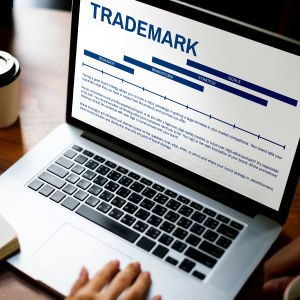Logout
Are you sure want to logout?
Yes
No

Full Name
Enter full name
Contact Number
Enter contact number
Enter valid contact number
Email Address
Enter email address
Enter valid email address

28 Sep 2021

28 Sep 2021
There probably exists quite a lot of knowledge around us in many forms, but unfortunately a few could find it.
Are you among the same or you are associated with the group of people that always try to find out some kind of information revolving around them in invisible form? Let us leave these thoughts behind and proceed further with the Trademark.
How many of you have heard about the Trademark? Many of you have heard about it; but could you explain it? Do you know what the Trademark and its registration are and how it benefits any company or service? Do not get upset because as always there is a solution to every problem and answers to every question. Let us have a glimpse of Trademarks in this blog.
A trademark can be defined as a simply recognizable symbol, phrase, or word that describes a specific product. It differentiates a product or service from another of its kind in a legal way also recognizes the source ownership of the brand of any company.
It can be any word, phrase, symbol, design, that helps to identify goods or services. It helps the customers to recognize you in the marketplace and distinguish you from your competitors.
It has the attribute that identifies the source of the goods or services, provides brand protection, and also helps to guard against counterfeiting and fraud.
It is often advisable to register the trademark to protect it from unauthorized use by someone else. Trademarking grants startups security in the field of branding which leads to escalating the business . By trademarking a company name, one makes its services and products distinctive or exceptional in terms of its competitors, becoming their intellectual property. In doing so, it prevents opponents from copying or stealing their brand.
Trademarking grants startups the security of their brand. By trademarking a company name, one makes its services and products distinctive from its opponents, competitors, becoming their intellectual property. This helps in preventing jealous challengers from copying or stealing their brand.
Trademarking grants startups the security of their brand. By trademarking a company name, one makes its services and products distinctive from its opponents, competitors, becoming their intellectual property. This helps in preventing jealous challengers from copying or stealing their brand.
A generic mark is a word taken as a general term for a product or service. For example, the word Apple would be generic for the fruit. There is no more common term to refer to the Apple fruit than simply Apple. But it would not go with the non-fruit items such as electronic devices.
Generic marks cannot be registered. People often use certain terms to refer to particular goods, services, or products.
However, a generic name is lagged while indicating the source by keeping in mind that the purpose of a trademark is to indicate the source of goods or services. It is common for a trademark to consist of multiple words, one or more of which may be generic.
If anyone wishes to apply for a design mark such as a logo and all the words in the logo are generic, the trademark describing the same may require a disclaimer of all the words.

These marks are relatively common for a trademark to consist of multiple words, one or more of which may be generic. In such cases, the USPTO (the United States Patent and Trademark Office) will likely require a disclaimer of the generic term, which indicates that no one could claim any exclusive rights to the disclaimed portion your trademark.
If we are applying for a design mark such as a logo and all the words in the logo is generic, the trademark examining attorney may require a disclaimer of all the associated words.
Descriptive marks are those trademarks or service marks that only describe the products or services to which they are applied. These could only be described and not protected or accorded trademark rights. This is because they do not identify and distinguish the source of products or services.
Descriptive marks could sometimes get confused with suggestive marks, which do receive moderately strong protection. The difference is that suggestive marks require imagination, thought, or perception that is used to determine the nature or quality of the goods, whereas descriptive marks highlight quite lengthy conclusions.
Suntan Oil is merely descriptive, whereas, Coppertone is suggestive of the outcome of using the product. Descriptive marks can become distinctive only if they try to approach the secondary meaning. This indicates the mark that seems descriptive and consumers consider the mark as a designation of a particular source.
Although, the scenario shows that many business owners want to use their surnames for their business. If we are considering using surnames, we should be aware the surnames are treated like descriptive marks in general. In other words, they will not be protected as trademarks if they are primarily used as surnames until they achieve secondary meaning.
Once a secondary meaning is achieved in a surname-based mark, the mark can be protected as a trademark, and others will not be able to use the mark on similar goods though they have the same name.
An arbitrary mark is composed of a word or words that have a common meaning in the language of the relevant leadership; however, that meaning is unrelated to the goods or services for which the mark is used.
Arbitrary marks, such as Apple for computers are considered precisely particular in associating and distinguishing products or services. Along with the fanciful or coined marks, the people should be educated as to the association of the arbitrary mark with the relevant product or service.
Many business owners often choose names or marks that. Usually, the strength of a mark is improved if the mark has less connection to a characteristic of the products or services it identifies. Fanciful trademarks are naturally unique.
Because of their distinctiveness, fanciful marks are considered the strongest or among the strongest types of trademarks. They refer only to the products or services to which they are applied. A fanciful mark does not have meaning other than about particular products or services.

The first step to trademarking includes the search of what we seek to trademark. As per the guidelines provided by the USPTO the searchable database allows one to see whether the idea has been used before. One will need to search the database to confirm that the intended trademarked item is not already listed and if trademarked by any other business.
The second step is to apply for federal trademark protection. The United States Patent and Trademark Office (USPTO) Online Application Site allows you to apply for federal trademark protection online directly through their website. A fee will be assessed at this point in the application process.
The third step is to order to have approval, and when your trademark application is approved, we are then granted exclusive legal rights to that trademark. Along with this, there will be a display of the public notice that we have claimed ownership of the trademark. Once this is approved then we are granted the legal right to use the symbol that designates a registered trademark. If the trademark application is denied, then there is an appeal process which USPTO describes further.
Even without formally applying for a trademark, the business still may have legal rights. If we tend to use our logo or symbol, some protection may be afforded just because we have been using it for our business branding purposes. Designation of Trademark or Servicemark notifies other businesses of our common law claim to those symbols, logos, or business names.
Trademarking grants startups the security of their brand. By trademarking a company name, one makes its services and products distinctive in terms of its competitors, becoming their intellectual property.
Along with this, there are some other trademarks as well that can be registered in India.
The following are a few types of trademarks that can be registered in India. These includes:

A wordmark is where we seek the registration of the words or letters only. This means that only the combination of words or letters is registered. The least focus is paid to the style in which the letters or words are represented, design, font size, or any other graphic feature of the words or letters.
Shape marks are the marks that are the shapes of the product or packaging of the business. The appearance of the product can distinguish the product from other products.
Logos and symbols are the printed design or character or painted design or figures that indicate the company name, service, or product name.
Collective marks, whenever linked with a group of people or services collectively, then are said to be the Collective Mark. The trademark is owned by any organization but can be used by various people.
Series Marks are registered to use before or after a chain of products where there would be a common suffix/prefix or symbol.
The Certification mark proves that the company has met the standards and quality of the products. This would make the public aware of the fact that products of any particular company have met the standards laid down by the certifying body.
Even if we can show that a mark is not generic, it would not automatically become registrable. Any non-generic mark could still be only descriptive and usually, descriptive marks get obstacles while approaching the process of registration.
So a trademark application for a surname is not automatically denied because it is a surname, and extremely rare surnames will not necessarily need proof of secondary meaning.
Also, a mark that is partly a surname and partly fanciful, arbitrary, or suggestive sometimes may be registered even if the surname portion cannot be registered independently.
Using a fanciful trademark provides the best chance of winning a trademark by occupying a place for itself. Some small or big business entrepreneurs consider trademarking is relatively straightforward. Experts recommend trademarking is simply because trademark lawsuits are complex and expensive, so it is better to apply for official registration rather than to get offended in the market.
[The images are being taken from the registered companies and belong to their respective owners only.]

Submit Design
Height and Width should be the same (e.g. 1000 x 1000)
Supported file formats : .JPG / .JEPG / .PNG